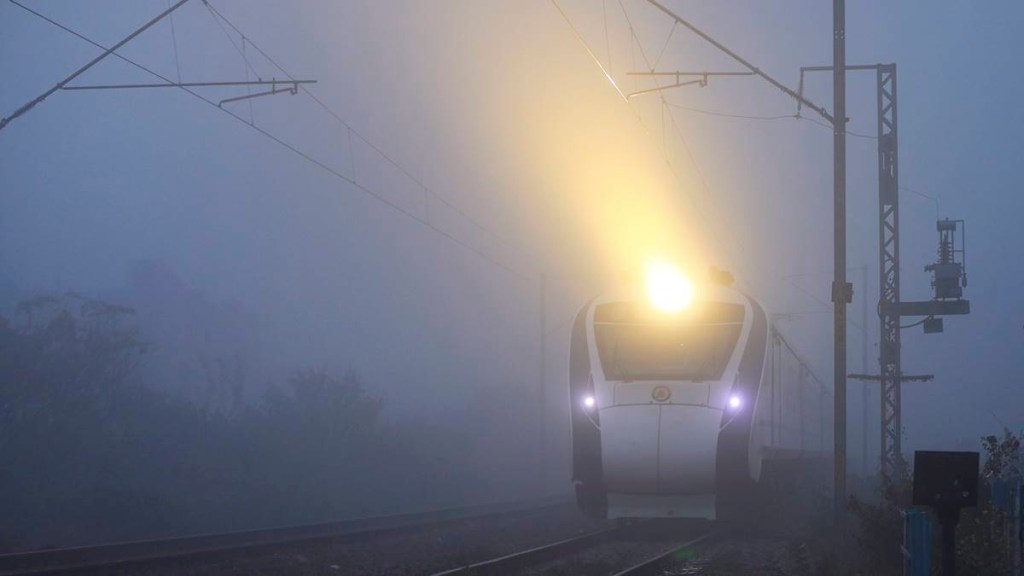In a significant move to sustain its capital expenditure momentum, the Indian Railways is poised to receive a substantial allocation of Rs 2.8-3 trillion in the interim budget for 2024-25. This marks an increase from the Rs 2.4 trillion provided in the previous fiscal year (2023-24 Budget Estimate). The railways’ ambitious plans include the indigenous production of 400 Energy Efficient Vande Bharat trains in collaboration with technology partners. With 41 Vande Bharat trains already in operation, the railways is geared up for a transformative phase, anticipating an additional outlay of Rs 40,000-60,000 crore for the fiscal year 2024-25 to ensure the seamless execution of its extensive project pipeline.
ALSO READ
Budget 2024 Live Updates: Union Budget 2024 Live Streaming, FM Nirmala Sitharaman Budget 2024 Speech Live
Railway Budget 2024 Live Updates: Indian Rail Budget 2024 Live Streaming
Budget 2024 Income Tax Live Updates: Income Tax Slab Rate Change Budget 2024 Live Updates
Budget 2024 Stocks to Focus: Union Budget 2024 Impact on Share Market Today
Budgetary support and borrowing relief
The consistent and substantial budgetary support for Indian Railways over the last four years has been instrumental in sparing the national rail network from annual borrowings amounting to Rs 60,000-70,000 crore. This strategic financial backing allows the railways to focus on building new infrastructure without the burden of extensive borrowing. The trend reflects a shift towards the government’s gross budgetary support as a primary source for capital spending in key infrastructure sectors, such as railways, roads, and highways.
Budget trends and steady increase in support
The upward trajectory of budgetary support for Indian Railways underscores the government’s commitment to fostering growth in the sector. From Rs 55,088 crore in 2018-19, the support has steadily increased to Rs 69,967 crore in 2019-20, Rs 70,250 crore in 2020-21, and further to Rs 1.17 lakh crore in 2021-22. This consistent financial backing reflects the recognition of railways as a vital engine for economic development and connectivity enhancement.
Vande Bharat Express expansion
As of January 6, 2024, Indian Railways boasts 41 operational Vande Bharat Express trains, covering 82 train numbers across 15 zones. The success of these high-speed, self-propelled trains has prompted a groundbreaking announcement: the development and manufacture of 400 new-generation Vande Bharat trains with enhanced energy efficiency and passenger riding experience over the next three years.
Technology partnership for indigenous production
To realize this ambitious plan, Indian Railways is actively engaging with technology partners through a tender process for the manufacture of 400 Energy Efficient Vande Bharat trains. The selection of diverse technologies for these trains highlights the railways’ commitment to innovation and sustainability in its quest for modernization.
Future prospects and infrastructure development
The substantial budgetary allocation for the upcoming fiscal year is not merely a financial boost but a strategic investment in the future of Indian Railways. The funds are crucial for the successful execution of various infrastructure projects, including the expansion of the Vande Bharat Express fleet and the enhancement of rail connectivity across the country. This financial support aligns with the government’s broader vision of fostering economic growth, promoting sustainable transportation, and ensuring seamless connectivity for both passengers and freight.
Indian Railways’ ambitious plans for the fiscal year 2024-25 signal a transformative phase for the country’s rail network. With a robust budgetary allocation, the railways is set to enhance its infrastructure, promote energy efficiency, and deliver an improved experience for passengers. The collaborative approach with technology partners and the focus on indigenous production exemplify the railways’ commitment to innovation and sustainability. As Indian Railways steers towards a dynamic future, the financial support provided underscores the government’s recognition of the pivotal role railways play in fostering economic development and connectivity.
